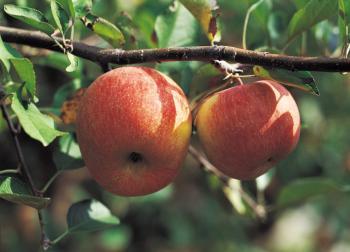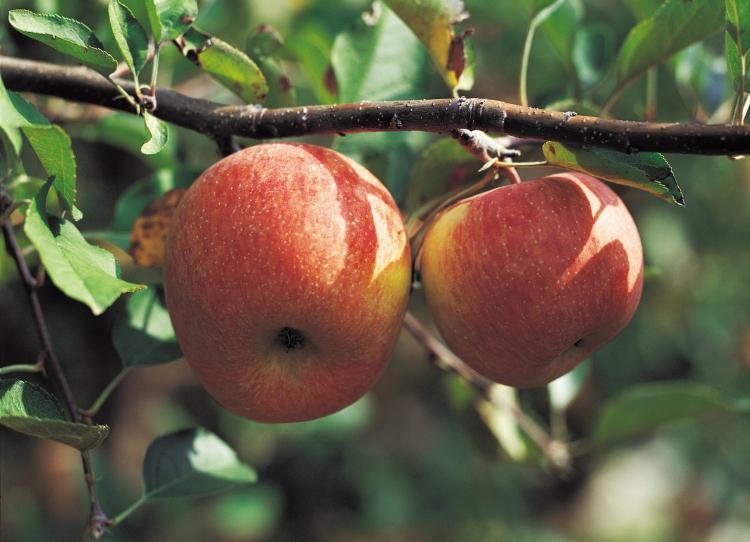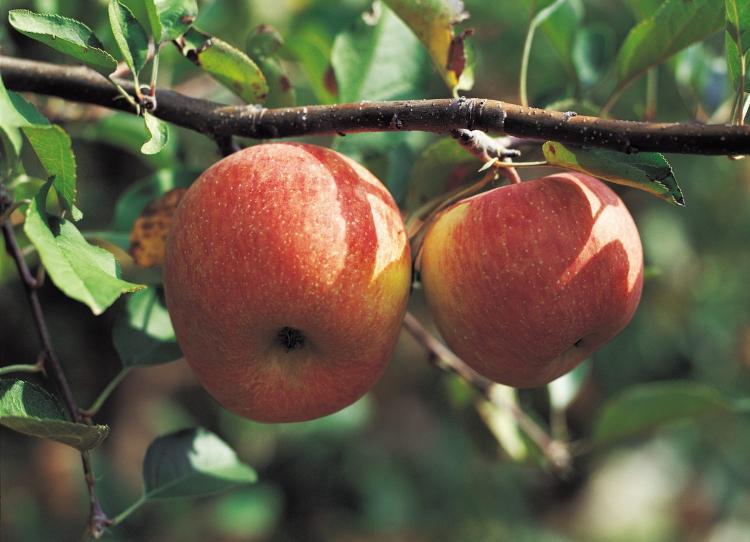Aussie apple growers are grudgingly swallowing the decision by the World Trade Organisation’s (WTO) Appellate Body to overturn their appeal forcing Australia to lift their ban on New Zealand apples.
New Zealand apples, banned from Australia since 1921, should be sitting on Australian shelves sometime next year.
Biosecurity Australia’s strict quarantine measures forced New Zealand to begin a formal dispute settlement process in 2007 through the WTO.
The subsequent ruling in August 2010 found that Australia’s 16 quarantine measures and risk assessment of New Zealand apples were inconsistent with their obligations as a WTO member.
Australia has consistently maintained that the bacterial disease fire blight found in New Zealand orchards posed a serious threat to their apple and pear industry.
A disappointed Darral Ashton, Australia’s Peak grower’s body Apple and Pear Limited chairman said he had been hopeful that the WTO Appellate Body would hold up their appeal.
“It is quite clear that New Zealand has had access here since 2007 and they have considered that the protocols were too strong and that’s why they went to the WTO,” he says.
“New Zealand has had fire blight for 90 years ...we really don’t want to see our growers exposed to it.”
The industry focussed on protecting Australian growers to allow them to keep a “clean green image,” he said.
Growers were worried that a ’third party' could override Australia’s own quarantine decisions.
“Australia, like New Zealand, is an island nation and we’ve been pretty well protected from these exotic things and that’s the way we want to remain,” Mr Ashton said.
Pipfruit New Zealand chief executive officer, Peter Beaven says New Zealand already exports apples to 65 different countries and that it is “bizarre” that Australia cannot accept them.
He estimates that apple exports to Australia could bring in as much as $30 million annually and expand our local market from 4 million people to 24 million.
Apple growers are “delighted” he says. The Australian market could take up to five percent of New Zealand’s production.
Australia has been instructed by the WTO to present a plan based on the WTO rulings and to give a timeframe. That will make it difficult for them to use their usual delaying tactics, says Mr Beaven.
Australia could have presented a better case to the WTO, said Australia’s Shadow Minister for Agriculture and Food Security in a statement.
John Cobb said their case had been undermined by the loss of expert risk analysis scientists who had left the country in droves because of underfunding in the sector.
Minister for Agriculture Senator Joe Ludwig and Trade Minister Craig Emerson said in a media release last Tuesday that they had fought for the “integrity” of Australia’s quarantine measures throughout the dispute.
The government also believed in the benefits of free trade and would accept the decision of the WTO’s independent umpire, said Dr Emerson.
Growers and stakeholders would be consulted in the government’s review of biosecurity procedures for importing apples.
“Just as for any other product, no trade in New Zealand apples can occur until quarantine measures that appropriately protect Australia and our agricultural producers have been determined,” Mr Ludwig said.
New Zealand apples, banned from Australia since 1921, should be sitting on Australian shelves sometime next year.
Biosecurity Australia’s strict quarantine measures forced New Zealand to begin a formal dispute settlement process in 2007 through the WTO.
The subsequent ruling in August 2010 found that Australia’s 16 quarantine measures and risk assessment of New Zealand apples were inconsistent with their obligations as a WTO member.
Australia has consistently maintained that the bacterial disease fire blight found in New Zealand orchards posed a serious threat to their apple and pear industry.
A disappointed Darral Ashton, Australia’s Peak grower’s body Apple and Pear Limited chairman said he had been hopeful that the WTO Appellate Body would hold up their appeal.
“It is quite clear that New Zealand has had access here since 2007 and they have considered that the protocols were too strong and that’s why they went to the WTO,” he says.
“New Zealand has had fire blight for 90 years ...we really don’t want to see our growers exposed to it.”
The industry focussed on protecting Australian growers to allow them to keep a “clean green image,” he said.
Growers were worried that a ’third party' could override Australia’s own quarantine decisions.
“Australia, like New Zealand, is an island nation and we’ve been pretty well protected from these exotic things and that’s the way we want to remain,” Mr Ashton said.
Pipfruit New Zealand chief executive officer, Peter Beaven says New Zealand already exports apples to 65 different countries and that it is “bizarre” that Australia cannot accept them.
He estimates that apple exports to Australia could bring in as much as $30 million annually and expand our local market from 4 million people to 24 million.
Apple growers are “delighted” he says. The Australian market could take up to five percent of New Zealand’s production.
Australia has been instructed by the WTO to present a plan based on the WTO rulings and to give a timeframe. That will make it difficult for them to use their usual delaying tactics, says Mr Beaven.
Australia could have presented a better case to the WTO, said Australia’s Shadow Minister for Agriculture and Food Security in a statement.
John Cobb said their case had been undermined by the loss of expert risk analysis scientists who had left the country in droves because of underfunding in the sector.
Minister for Agriculture Senator Joe Ludwig and Trade Minister Craig Emerson said in a media release last Tuesday that they had fought for the “integrity” of Australia’s quarantine measures throughout the dispute.
The government also believed in the benefits of free trade and would accept the decision of the WTO’s independent umpire, said Dr Emerson.
Growers and stakeholders would be consulted in the government’s review of biosecurity procedures for importing apples.
“Just as for any other product, no trade in New Zealand apples can occur until quarantine measures that appropriately protect Australia and our agricultural producers have been determined,” Mr Ludwig said.





